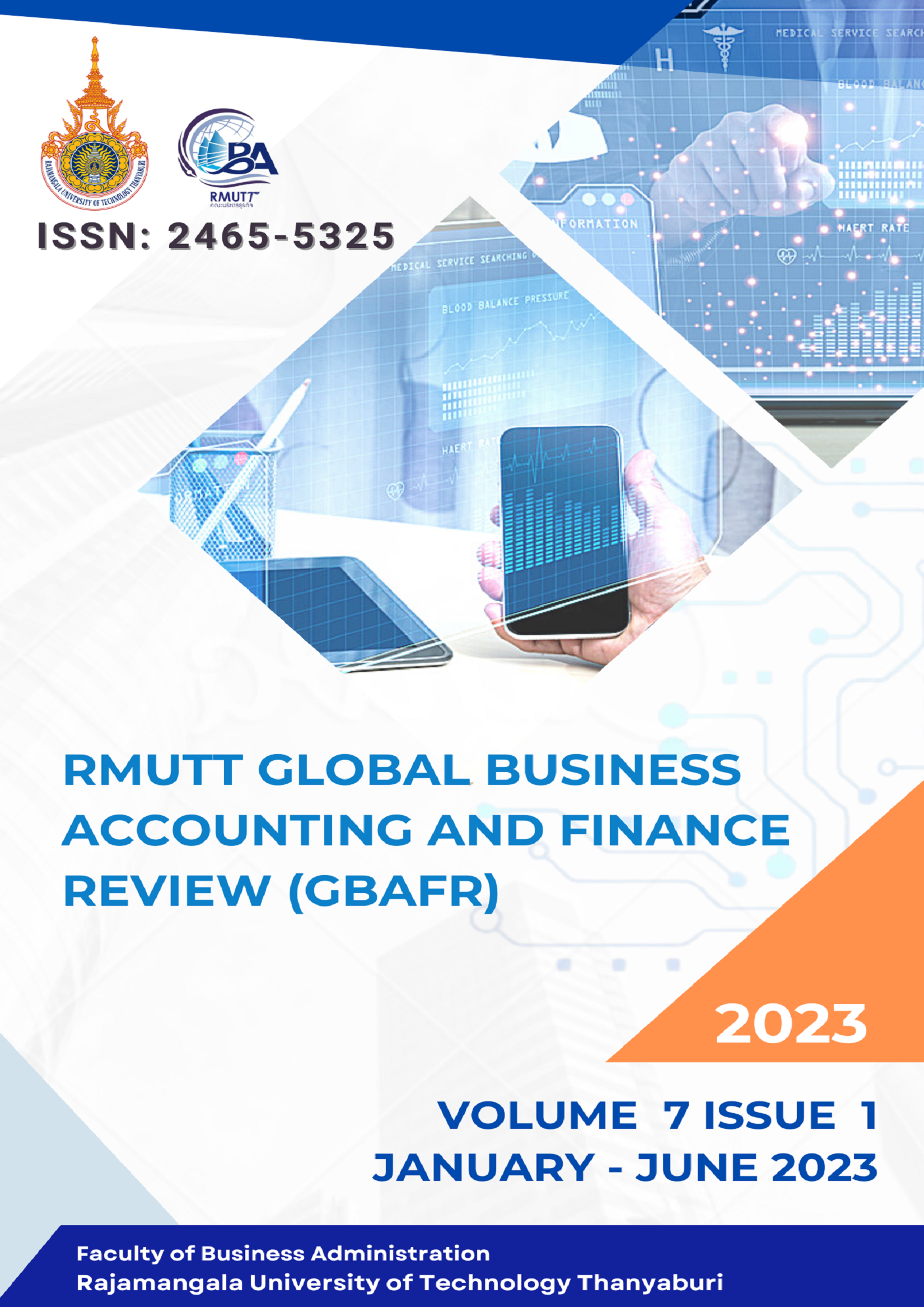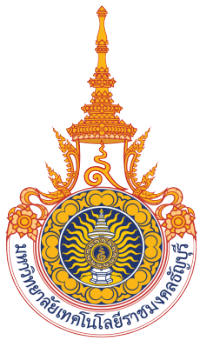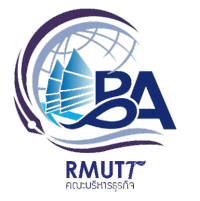THE INFLUENCING EFFECT OF THE SERVICE MARKETING MIX (7PS) AND CUSTOMER SATISFACTION ON BRAND TRUST: HOTEL INDUSTRY IN THAILAND
Keywords:
Service Marketing Mix 7Ps, Customer Satisfaction, Brand Trust, Hotel Industry in ThailandAbstract
Thailand is one of the very famous tourist destinations for tourist around the world. Each year Thailand welcomes so many millions of tourists who visit the country and generate a lot of income for the nation. The hospitality industry is a very significant service sector, which included tourism, restaurant, hotel business, and other service businesses. These businesses are the main income of Thailand. The hotel business is the main business of the hospitality industry and it will be the area of study in this research. As the competition in the hotel industry in Thailand is very fierce then every hotel needs to provide the best service to satisfy their customers. The 2 factors between service marketing mix 7Ps and customer satisfaction were chosen to study and investigate the effect on customer brand trust. Data collection was done with the customers who stay at the hotel and use other services during their stay. The data was collected in 4 famous tourist destination cities in Thailand namely Bangkok, Chiang Mai, Pattaya, and Hua Hin. A sample of 435 customers participated in this research and the data was analyzed by using structural equation modeling (SEM). The conceptual framework was designed and presented in this study to explain the relevant factors on hotel customer brand trust. The result shows that both factors (service marketing mix and customer satisfaction) influence customer brand trust of the hotel that they chose to purchase and stayed but customer satisfaction has a higher level of influence than service marketing mix. However, both factors are very important for the hotel's performance, which owner and management need to seriously focus on and monitor to bring success to their business.
References
Abbasi, A. S., Khalid, W., Azam, M., & Riaz, A. (2010). Determinants of customer satisfaction in hotel industry of Pakistan. European Journal of Scientific Research, 48(1), 97-105.
American Marketing Association. (2017). Definitions of Marketing. Retrieved from https://www.ama.org/the-definition-of-marketing-what-is-marketing/
Anh, N. D. (2019). Marketing mix strategy for New Island bar of La Belle Vie hotel in Ha Long bay. (Degree programme in International Business). Satakunnan ammattikorkeakoulu, Satakunta University of Applied Sciences.
Anholt, S. (2005). Some important distinctions in place branding. Place branding, 1(2), 116-121.
Asian Development Bank. (2007) Asian Development Outlook 2007: Growth amid Change. Manila.
Baker, M. J. (2000). Marketing Strategy and Management (3rd ed.). London: The Macmillan Press LTD.
Bisht, N. S., Belwal, R., & Pande, S. (2010). Internet marketing of tourism. India: Himalaya publishing house.
Booms, B. H., & Bitner, B. J. (1981). Marketing Strategies and Organization Structures for Service Firms. In: Donnelly, J.H. and George, W.R., Eds., Marketing of services, American Marketing Association, Chicago, IL, 47-51.
Choi, T. Y., & Chu, R. (2001). Determinants of hotel guests’ satisfaction and repeat patronage in the Hong Kong hotel industry. International Journal of Hospitality Management, 20(3), 277-297.
Chow, C. Y. (2018). Analysis on the Influencing Factors of Online Verse Offline Hotel Reservation. (Master’s Thesis). Tamkang University, New Taipei City, Taiwan.
Davies, W., & Brush, K. E. (1997). High-tech industry marketing: The elements of a sophisticated global strategy. Industrial Marketing Management, 26(1), 1-13.
Day, R. L. (1977). Extending the Concept of Consumer Satisfaction. in NA - Advances in Consumer Research Volume 04, eds. William D. Perreault, Jr., Atlanta, GA: Association for Consumer Research, 149-154.
Dehdashti, Z., Kenari, M., & Bakhshizadeh, A. (2012). The impact of social identity of brand on brand loyalty development. Management Science Letters, 2(4), 1425-1434.
Fornell, C., & Larcker, D. F. (1981). Structural equation models with unobservable variables and measurement error: Algebra and statistics. Journal of Marketing Research, 18(3), 382–388.
Hair Jr, J. F., Sarstedt, M., Ringle, C. M., & Gudergan, S. P. (2017). Advanced issues in partial least squares structural equation modeling. California: SAGE publications.
Hair, J. F., Black, W. C., Babin, B. J., & Anderson, R.E. (2010). Multivariate Data Analysis (7th ed.). New Jersey: Prentice Hall.
Jain, M. K. (2013). An analysis of marketing mix: 7Ps or more. Asian Journal of Multidisciplinary Studies, 1(4), 23-28.
Kandampully, J., & Suhartanto, D. (2003). The role of customer satisfaction and image in gaining customer loyalty in the hotel industry. Journal of Hospitality & Leisure Marketing, 10(1-2), 3-25.
Khan, M. T. (2014). The concept of ‘marketing mix’and its elements. International journal of information, business and management, 6(2), 95-107.
Kotler, P. (1972). A generic concept of marketing. Journal of marketing, 36(2), 46-54.
Kotler, P., & Gertner, D. (2007). Country as brand, product and beyond: A place marketing and brand management perspective. In Destination branding (pp. 55-71). Routledge.
Kuo, P. J., Zhang, L., & Cranage, D. A. (2015) What you get is not what you saw: exploring the impacts of misleading hotel website photos. International Journal of Contemporary Hospitality Management, 27(6), 1301–1319.
Laparojkit, S., & Suttipun, M. (2022). The causal factors influencing repurchase intentions of local tourists in Thailand during COVID-19 crisis. Journal of Tourism Futures, (ahead-of-print).
Lee, J. M. (2019). The relationships among brand assets, customer satisfaction, brand trust, and brand loyalty related to golf products. East Asian Journal of Business Economics, 7(3), 75-81.
Lewis, R. C., & Chambers, R. E. (2000). Marketing Leadership in Hospitality, Foundations and Practices (3rd ed.). New York: Wiley.
Loo, P. T., & Leung, R. (2018). A service failure framework of hotels in Taiwan: Adaptation of 7Ps marketing mix elements. Journal of vacation marketing, 24(1), 79-100.
Lovelock, C. & Wirtz, J. (2007). Services Marketing: People, Technology, Strategy. New Jersey: Prentice Hall.
Magatef, S. G. (2015). The impact of tourism marketing mix elements on the satisfaction of inbound tourists to Jordan. International Journal of Business and Social Science, 6(7), 41-58.
Maghzi, A., Abbaspour, B., Eskandarian, M., & Hamid, A. B. A. (2011, December). Brand trust in hotel industry: Influence of service quality and customer satisfaction. In 2nd International Conference on Business, Economics and Tourism Management (Vol. 24, pp. 42-46).
Matura, P., Mbaiwa, J., & Mago, S. (2021). Marketing Mix Strategies of Small and Medium Tourism enterprises in Masvingo Province, Zimbabwe. Marketing, 10(3), 1025-1047.
Maurya, U. K., & Mishra, P. (2012). What is a brand? A Perspective on Brand Meaning. European Journal of Business and Management, 4(3), 122-133.
McCharty, E. J. (1964). Basic Marketing: A Managerial Approach (2nd Edition). New York: Irwin.
Ministry of Tourism and Sport. (2021). Tourism statistic 2019 and 2020. Retrieved from https://www.mots.go. th/more_news_new.php?cid5521
Moore, K., & Reid, S. (2008). The Birth of Brand: 4000 Years of Branding History. Business History, 50(4), 419-432.
Morgan, R. M., & Hunt, S. D. (1994). The commitment-trust theory of relationship marketing. Journal of marketing, 58(3), 20-38.
Mostaani, M. H. (2005). The Management of Consumer Cooperatives. Tehran: Paygan Publications.
Mucai, G. P., Mbaeh, E. K., & Noor, A. I. (2013). Extended Marketing Mix and Customer's Satisfaction in Classified Non-Star Hotels in Meru Municipality Kenya. International Review of Management and Business Research, 2(3), 691-696.
Pourdehghan, A. (2015). The impact of marketing mix elements on brand loyalty: A case study of mobile phone industry. Marketing and Branding Research, 2(1), 44-63.
Priyo, J. S., Mohamad, B., & Adetunji, R. R. (2019). An examination of the effects of service quality and customer satisfaction on customer loyalty in the hotel industry. International Journal of Supply Chain Management, 8(1), 653-663.
Rao, P. S., & Sahu, P. C. (2013). Impact of service quality on customer satisfaction in hotel industry. IOSR Journal of Humanities and Social Science, 18(5), 39-44.
Rather, R. A., & Sharma, J. (2017). The effects of customer satisfaction and commitment on customer loyalty: Evidence from the hotel industry. Journal of Hospitality Application & Research, 12(2), 41-60.
Rather, R. A., Tehseen, S., Itoo, M. H., & Parrey, S. H. (2021). Customer brand identification, affective commitment, customer satisfaction, and brand trust as antecedents of customer behavioral intention of loyalty: An empirical study in the hospitality sector. In Consumer Behaviour in Hospitality and Tourism (pp. 44-65). Routledge.
Sahin, A., Zehir, C., & Kitapç, H. (2011). The Effects of brand experiences, trust and satisfaction on building brand loyalty: An empirical research on global brands. Procedia Social & Behavioral Sciences, 24, 1288–1301.
Salman, D., Tawfik, Y., Samy, M., & Artal-Tur, A. (2017). A new marketing mix model to rescue the hospitality industry: Evidence from Egypt after the Arab Spring. Future Business Journal, 3(1), 47-69.
Schönsleben, P. (2019). Tangible services and intangible products in industrial product service systems. Procedia CIRP, 83, 28-31.
Sim, J., Mak, B., & Jones, D. (2006). A model of customer satisfaction and retention for hotels. Journal of Quality Assurance in Hospitality & Tourism, 7(3), 1-23.
Somocor, M. (2017). Marketing mix and service quality (servqual) attributes as determinants of customer satisfaction in selected three star hotels in Davao city. International Journal of Contemporary Applied Researches, 4(6), 134-187.
Teng, Y. M., Wu, K. S., & Chou, C. Y. (2020). Price or convenience: What is more important for online and offline bookings? A study of a five-star resort hotel in Taiwan. Sustainability, 12(10), 3972.
Thai Hotels Association. (2022). Name List for Thai Hotel Standard Foundation. Retrieved from http://thaihotels.org/wpcontent/uploads/2022/01/NAME-LIST-FOR-THAILANDHOTEL-STANDARD-FOUNDATION.pdf.
Timothy, D. J. (2006). Safety and security issues in tourism. In Tourism management dynamics (pp. 19-27). Routledge.
While World Travel & Tourism Council. (2021, May 2). Travel & tourism economic impact. Travel & Tourism Representative Council https://wttc.org/Research/Economic-Im pact.
Widyastuti, A. N., Pujiharto, P., Tubastuvi, N., & Santoso, S. B. (2020). The effect of marketing mix on purchase decisions. Jurnal Manajemen Bisnis, 11(2), 163-176.
Xie, Y. (2020). The relationship among marketing mix, customer satisfaction and customer loyalty of Chinese tourists to budget hotel of central Bangkok. International Journal of Business and Economics, 2(1), 1-23.
Zeithaml, V. A., Bitner, M.J & Gremler, D. D. (2006). Services marketing: Integrating customer focus across the firm (4th ed.). New York, NY: McGraw-Hill/Irwin.
Downloads
Published
How to Cite
Issue
Section
License
Copyright (c) 2023 Faculty of Business Administration, Rajamangala University of Technology Thanyaburi

This work is licensed under a Creative Commons Attribution-NonCommercial-NoDerivatives 4.0 International License.









